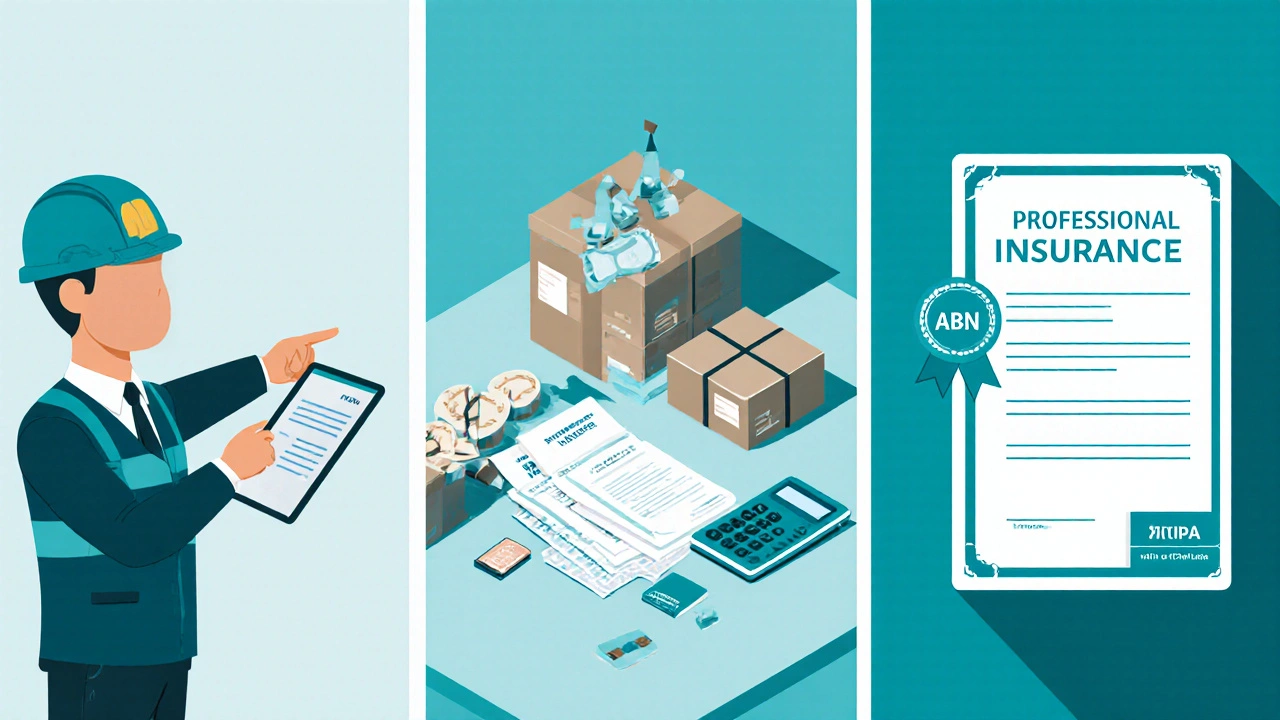Contractor Status Checker
Contractor Status Assessment
This tool helps determine if someone qualifies as a contractor based on the three key criteria outlined in New Zealand's legal framework.
Answer the three questions below to assess if the person or business meets the contractor definition.
Does the person decide how, when, and what methods to use for the work?
Does the person buy materials, hire helpers, and bear profit-or-loss outcome?
Does the person operate under a business name with ABN/IRD number and professional insurance?
Answer the questions above to see if this person qualifies as a contractor.
When you hear the word “contractor,” you might picture a hard‑hat on a construction site, a van full of tools, or the person who handed you the quote. But the reality is more layered. Knowing exactly who counts as a contractor helps you avoid legal trouble, choose the right partner, and keep a project on track.
What Is a Contractor?
Contractor is a person or business that enters into a contract to provide goods or services in exchange for payment. In the building world, this usually means taking on construction‑related work, from framing a house to installing a commercial HVAC system.
Who Qualifies as a Contractor?
The line between a contractor and a casual worker can blur, especially on small jobs. In New Zealand, three criteria usually decide the status:
- Control: The person decides how, when, and what methods to use for the work.
- Financial risk: They buy materials, hire helpers, and bear the profit‑or‑loss outcome.
- Business structure: They operate under a business name, have an ABN/IRD number, and often hold professional indemnity insurance.
If all three are present, you’re likely dealing with a contractor rather than an employee.
Types of Contractors in Building Projects
Not every contractor does the same job. Below are the most common categories you’ll meet on a site.
- General Contractor is a company that oversees the entire construction process, hires subcontractors, and manages schedules and budgets.
- Building Contractor is a specialist who focuses on constructing or renovating structures, such as homes, offices, or extensions.
- Licensed Contractor is a contractor who holds a current licence issued by the New Zealand Building Authority, confirming they meet competency and insurance standards.
- Subcontractor is a independent specialist hired by the main contractor to perform a specific trade, like electrical or plastering.
- Construction Owner is a person or entity that funds the project and ultimately owns the finished building.

Legal Requirements and Licensing (NZ Context)
New Zealand has clear rules that separate legitimate contractors from hobbyists. The New Zealand Building Act is a framework that mandates licensing, compliance, and safety standards for anyone undertaking building work.
- All building contractors must hold a valid building practitioner licence for the class of work they perform.
- They must carry a Certificate of Currency for professional indemnity insurance.
- Large projects often require a construction contract that follows the Standard Form of Contract (SFOC) guidelines.
Skipping these steps can lead to hefty fines, work stoppages, and even criminal charges.
How Contractors Differ from Subcontractors
It’s easy to mix up contractors and subcontractors, but the distinction matters when you read a quote or sign a contract.
| Aspect | Contractor | Subcontractor | Supplier |
|---|---|---|---|
| Primary Role | Manages whole project | Executes a specific trade | Provides materials only |
| Legal Liability | Overall project compliance | Liable for work scope only | Liable for product quality |
| Licensing | Usually requires a building licence | May need trade licence | Typically no licence needed |
| Contract Type | Main construction contract with owner | Sub‑contract under main contract | Purchase order or supply agreement |
This table shows why you should verify a party’s status before signing anything.
Common Misconceptions
- “Anyone with a toolbox is a contractor.” Not true. Without the legal criteria-control, financial risk, and business structure-the person is likely a tradie or employee.
- “A subcontractor can replace a contractor.” Subcontractors work under the contractor’s direction; they cannot take on the overall project responsibilities.
- “If I’m paid cash, I’m not a contractor.” Payment method doesn’t change legal status. Even cash‑paid work must meet the contractor definition.

Checklist: Determining If Someone Is a Contractor
Use this quick list before you hand over a deposit.
- Do they have a business name and IRD number?
- Is a building licence attached to the work class?
- Do they provide a written contract outlining scope, price, and timelines?
- Do they carry professional indemnity insurance?
- Are they responsible for hiring any helpers or subcontractors?
If you answer “yes” to most, you’re dealing with a contractor.
Frequently Asked Questions
What is the difference between a contractor and a builder?
A builder usually refers to a person or firm that constructs new structures, while a contractor can manage any type of construction work, including renovations, repairs, and specialized trades.
Do I need a licence to hire a contractor in Auckland?
If the work involves building, demolition, or structural changes, the contractor must hold a current Building Practitioner Licence for that class of work.
Can a subcontractor become the main contractor?
Yes, but they would need to renegotiate the contract with the owner, obtain any required licences, and take on full project liability.
What paperwork should I ask for before starting?
A written contract, proof of licence, insurance certificate, and a detailed scope of work with a payment schedule.
Is a contractor responsible for safety on site?
Yes. The main contractor must ensure the site follows health and safety regulations, provide personal protective equipment, and conduct risk assessments.
Bottom Line
Understanding who is officially a contractor protects you from legal headaches and ensures you hire the right expertise. Look for a business structure, a licence, and written contracts, and you’ll be on solid ground whenever you start a construction project.

Write a comment